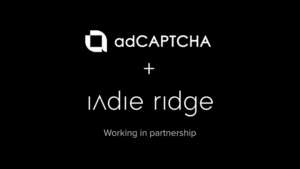With the Conservatives the last of the three main parties to release their election manifesto this weekend, we take a look at the promises and pledges each has made around Digital Britain.
From taxing the digital giants to supporting the uptake of new technology such as artificial intelligence through to protecting the vulnerable online, tackling fake news and the might of Google and Facebook and bringing broadband to all, here’s (briefly) what they have to say.
A Tory government would legislate to prevent online abuse, especially against children. It has also pledged to review and adapt the Gambling Act “for the digital age”.
The Tories would also implement the digital services tax developed by former Chancellor Philip Hammond, which will from April 2020 introduce a new 2% tax on the revenue of search engines, social media platforms and online marketplaces which derive value from UK users.
Connecting the UK, it continues, will require upgrade of the technology infrastructure. “We are Europe’s technology capital, producing start-ups and success stories at a dazzling pace. But not everyone can share the benefits,” the manifesto reads. It intends to bring full fibre and gigabit-capable broadband to every home and business across the UK by 2025.
Further pledges include supporting entrepreneurs to “strike out on their own, and have an idea that grows into a world-leading business”; introducing 20 Institutes of Technology and tax relief for investments in cloud computing and data.
The Labour Party says that digital and technological advancements “bring challenges, but also huge opportunities”. In the age of AI and automation, Labour believes that digital connectivity will underpin Britain’s future economy — and needs world-class digital infrastructure.
Labour will deliver free full-fibre broadband to all by 2030, establishing a state-owned British Broadband with two arms: British Digital Infrastructure (BDI) and the British Broadband Service (BBS). It will bring the broadband-relevant parts of BT into public ownership, with a jobs guarantee for all workers in existing broadband infrastructure and retail broadband work.
Taxation of multinationals, including tech giants, will pay for the operating costs of the public full-fibre network. The manifesto says the plan will boost jobs, tackle regional inequality and improve quality of life as part of a mission to connect the country.
A Labour government would enforce a legal duty of care to protect our children online, impose fines on companies that fail on online abuse and empower the public with a Charter of Digital Rights. It would also consult on ways to address the gender imbalance in the digital creative industries and review the copyright framework to ensure fair remuneration for artists and content creators.
A Labour government would ensure a “healthy future” for public service broadcasters and says that a free and fair press is vital to protecting democracy and holding the powerful to account. “We will take action to address the monopolistic hold the tech giants have on advertising revenues and will support vital local newspapers and media outlets,” it says.
Labour would consult media sector workers and trade unions to establish an inquiry into the ‘fake news’ which is believes is undermining trust in media, democracy and public debate.
The Lib Dems state in the manifesto that they are the “only party” that understand or value start-ups and small businesses and pledges to give them access to the funding and long-term capital that they need.
It would prioritise small and medium-sized businesses in the rollout of hyper-fast broadband.
A key pillar of its manifesto is its “ambition for the UK to lead the world in ethical, inclusive new technology”, including artificial intelligence. As such it would invest in education to equip people with the skills they need — whether to use new technology or to create it — whilst also attracting talent from around the world.
“We will enable innovators and entrepreneurs to experiment and take risks, while taking on concentrations of power that stifle competition, limit choice for consumers and hamper progress,” it says.
The party wants to ensure that new technology is developed and deployed ethically, so that it respects people’s fundamental rights, including the rights to privacy and non-discrimination.
A Liberal Democrat government would enable industry bodies to sponsor work visas; support the growth of new tech jobs and business with tax credits and simplifying and speeding up regulations and regulatory change.
A ‘Lovelace Code of Ethics’ would ensure the use of personal data and artificial intelligence is unbiased, transparent and accurate, and respects privacy. It would also require digital courses to include teaching about ethics and the Code specifically, introduce an ethical kitemark and convene a citizens’ assembly to determine when it is appropriate for the government to use algorithms in decision-making.
Further pledges include allowing the public to share in the profits made by tech companies in the use of their data; setting a UK-wide target for digital literacy and requiring all products to provide a short, clear version of their terms and conditions, setting out the key facts as they relate to individuals’ data and privacy.












